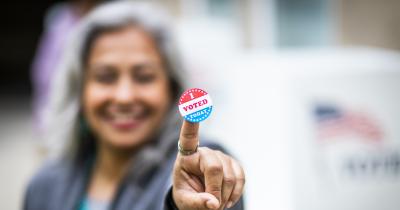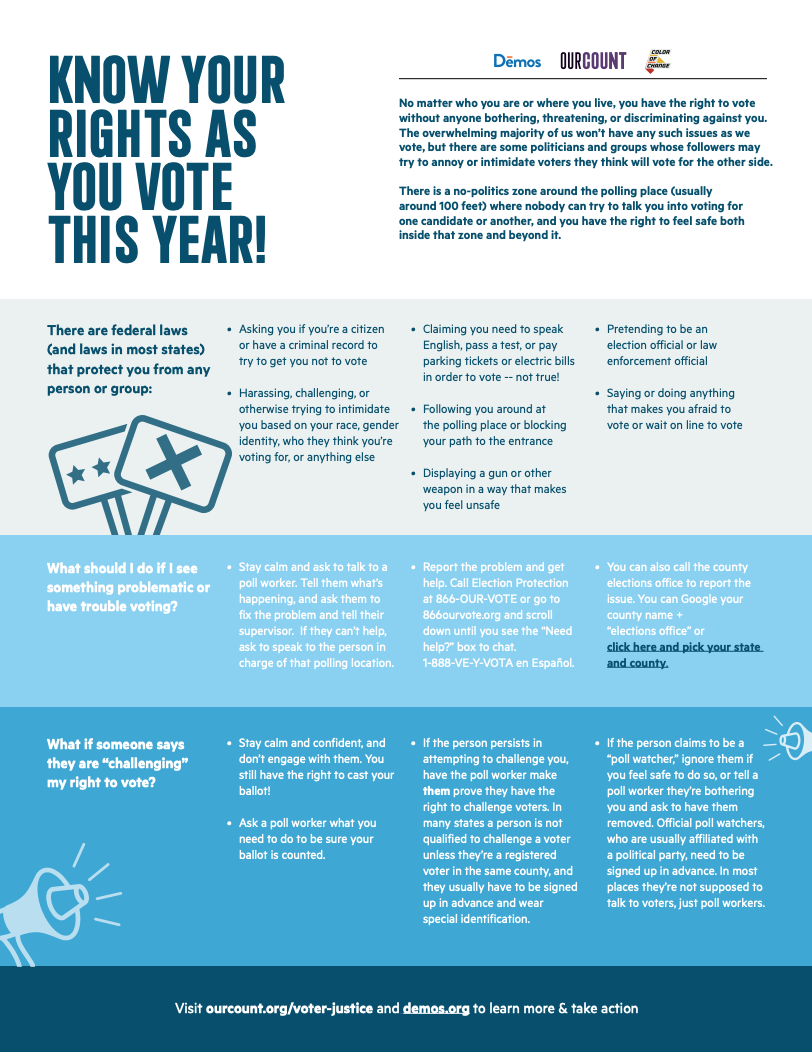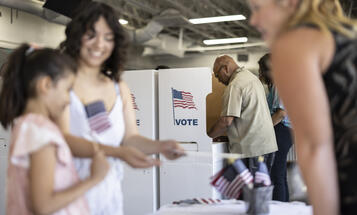
Keep Calm and Know Your Voting Rights
A voting rights guide and resources for ensuring that anyone trying to interfere with our communities’ voting rights ends up wasting their time.

The final day of voting may be 11 days away, but the 2020 election is in full swing right now. More than 45 million Americans have already voted—a significant jump compared with the early vote period 4 years ago.
The vast majority of voters will have an uneventful experience doing our civic duty, whether during early voting or on Election Day.
Yet with a rise in far-right extremism and quasi-militia activity in response to racial justice activism and COVID-19 restrictions (encouraged by partisan political operatives), up to a third of Black and brown voters are concerned about physical violence, armed militias, or law enforcement activity at polling places.
The good news is there are strong federal laws (and laws in most states) to protect voters from harassment or intimidation. And many elected officials are taking this seriously and have proactive plans to protect voters.
The best solution is to be prepared. Here’s what we can all do together to make sure anyone who tries to interfere with our communities’ voting rights ends up wasting their time.
Stay calm and know your rights.
Demos has partnered with Color of Change on this simple digital guide to take with you on your phone.
Develop a plan in advance.
Who will be your first call if you run into a problem at the polls? Do you trust your county clerk, or are you more comfortable using a hotline set up by the secretary of state or attorney general? Demos worked with our partners OLÉ and Center for Civic Policy in New Mexico to develop this sample guide you can adjust for your own needs.
Document any problems, so bad actors can be held accountable.
Through enforcement or litigation, government officials and private voting rights groups like Demos can help make sure anyone trying to intimidate voters is stopped in their tracks. You can help by getting as much information as possible about any intimidation you experience or witness. Demos has created a questionnaire to make that easy. There’s a short form in English and Spanish; and a longer version for more detail that includes draft legal documents, also in English and Spanish.
Elevate the issue for tracking and more assistance.
The Election Protection hotline is your go-to spot to get more help: 866-OUR-VOTE; Spanish, Arabic, and Asian language numbers here. For online help, you can go to www.866ourvote.org and also report your incident at www.SeeSay2020.com.
Share your positive voting experience far and wide.
It’s critical that people come to the polls with confidence despite news or social media reports about troubling incidents in some places. If you have a smooth experience voting this year you can help by sharing that with friends and family on social media. Let’s flood our feeds with compelling pictures of democracy in action, and drown out the fear some are pushing on our communities.
Finally, one more thing you can do in advance to help make sure the election goes smoothly is to get training in de-escalation so you can learn how to intervene in the most helpful way if you do see voter intimidation in action. This is an especially good way for military veterans and faith leaders to engage. Sign up at www.ElectionDefenders.org.




